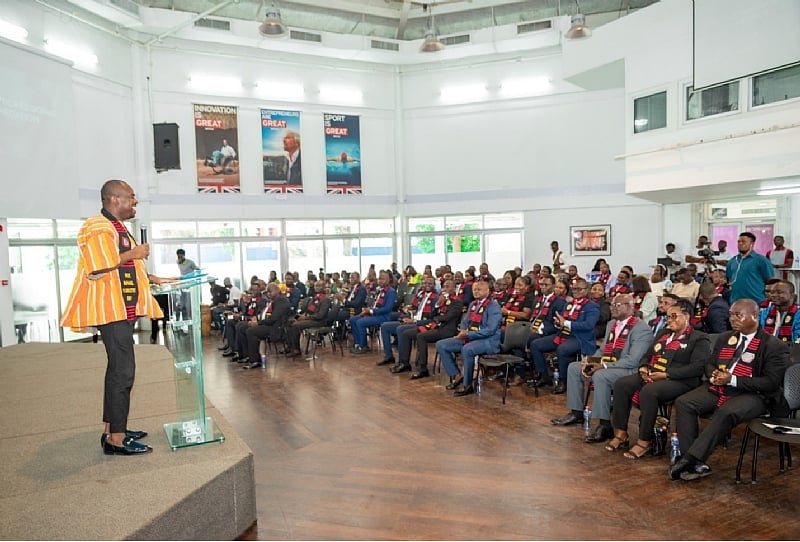Renowned Naturopath, Prof. Raphael Nyarkotey Obu, has stated that the development of Ghana’s herbal medicine sector holds the key to stabilizing the Ghanaian cedi and strengthening the continent’s overall economy.
Speaking as the keynote speaker at the graduation ceremony for Chartered Economists and Health Economists at the British Council in Accra, Prof. Nyarkotey called on African leaders to prioritize the herbal industry as a major pillar of economic development.
Delivering his address on the theme “Resetting Ghana’s Economy Through Herbal Medicine Development”, Prof. Nyarkotey said Ghana and other African countries are ignoring a powerful economic resource that lies in their rich traditional medicinal heritage.
“We continue to struggle with a weakening cedi, high unemployment, and rising imports, while overlooking the economic potential of our indigenous herbs,” he said. “If we invest in and industrialize herbal medicine, we can not only earn billions in export revenue but also stabilize the cedi and create sustainable jobs.”
Prof. Nyarkotey identified four key herbs—hibiscus, moringa, neem, and dandelion—as examples of untapped economic goldmines. According to him, Ghana alone could generate over $10.2 billion annually by promoting these herbs on the global market.
“Moringa can purify polluted water and has high nutritional value. Hibiscus is in global demand for health beverages. Neem has broad medicinal and agricultural uses, while dandelion is gaining popularity in Western markets,” he explained.
He further advocated for the elevation of the Traditional Medicine Practice Council (TMPC) into a full-fledged authority to regulate and promote herbal products both locally and internationally. Prof. Nyarkotey believes that a properly managed herbal sector can reduce Ghana’s reliance on imports, ease pressure on the cedi, and open up new economic frontiers.
“As China, India, and other countries earn billions from their herbal medicine exports, Africa must wake up to its own potential. We don’t need to look too far for solutions—our forests, villages, and traditional knowledge hold the answers,” he stated.
Prof. Nyarkotey, who is also President of Nyarkotey University College of Holistic Medicine & Technology, urged the graduating economists to lead the charge in reshaping Africa’s economy through innovation rooted in local resources.
The graduation ceremony, organized by the Global Academy of Finance and Management (GAFM) in collaboration with the International Certification Center (ICC), attracted stakeholders from academia, healthcare, and economic sectors.
Prof. Nyarkotey’s address has since stirred renewed interest in herbal medicine as a viable economic pathway and a stabilizer for local currencies like the cedi.


